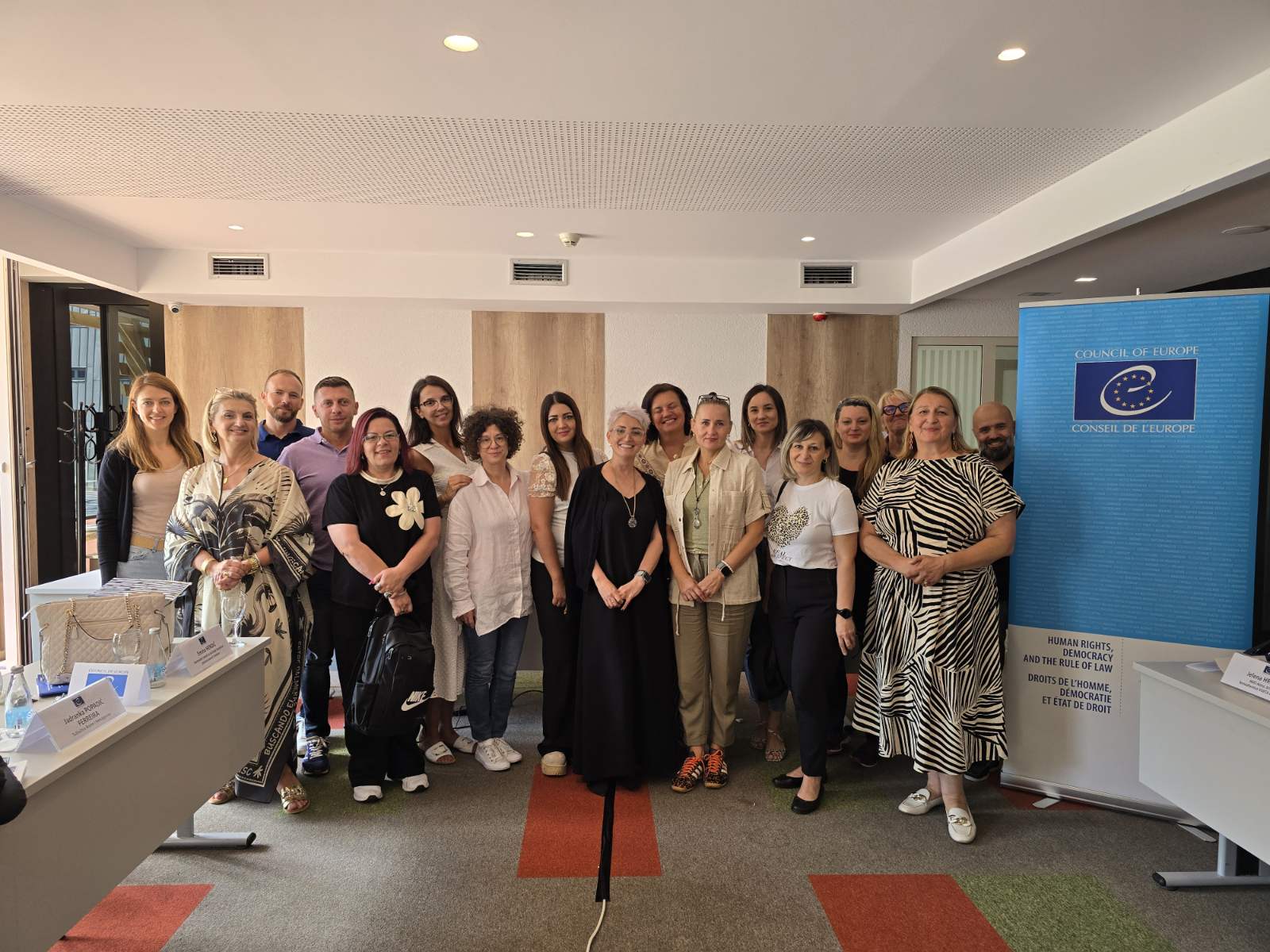Hotline: +381 61 63 84 071
Strengthening support for trafficking survivors through victim-centred interviewing

Strengthening support for trafficking survivors through victim-centred interviewing
How we talk to survivors of human trafficking can make all the difference. The questions we ask, the words we choose, and the way we listen can either help survivors feel safe and respected or deepen their trauma. This is why victim-centred interviewing is so important: it places the survivor’s dignity, trust, and wellbeing at the heart of every conversation.
On July 14–15, 2025, Atina took part in a training of trainers on victim-centred interviewing in Bjelašnica, organized within the Council of Europe’s office in Sarajevo project “Access to justice and effective remedies for victims of human trafficking in Bosnia and Herzegovina.” The training gathered 14 professionals from various fields, judges, police, psychologists, social workers, and NGO activists, all working to ensure that survivors are treated with care and respect. The training was led by judge Sena Uzunović, psychologist Mirela Mujagić, police inspector Mehmedalija Fišeković, and NGO activist Jelena Hrnjak, who together combined legal, psychological, law enforcement, and civil society expertise in working with victims of human trafficking. Over two days, participants learned about the legal, psychological, and practical aspects of working with survivors. They practiced through role-plays, simulated interviews, and even a mock trial. These exercises helped them see how theory translates into real life.
The training demonstrated that practical, hands-on methods, such as role-plays, simulations, and real-case scenarios, have the most substantial impact, even for experienced professionals who often require additional support in areas like active listening and trauma-informed communication. While participants demonstrated strong ethical awareness, it became clear that these values must be reinforced through applied practice, especially in complex or high-stress situations. Based on these lessons, future trainings should be longer and more interactive, with a stronger focus on developing communication skills, involving mental health and interdisciplinary experts, and creating opportunities for peer learning and exchange. Providing access to materials after the training, organizing refresher sessions, and making evaluations a standard part of the process would further strengthen results. Finally, expanding participation to sectors such as education and healthcare would ensure earlier identification and prevention of trafficking cases, while enhancing the overall effectiveness of the response.
What changed for participants
Before the training, many participants already possessed a substantial understanding of empathy and confidentiality. However, they struggled with skills such as active listening and using open-ended questions, understanding how to support survivors, and recognizing trauma responses. One of the highlights was the workshop “Say it differently”, led by Atina Jelena Hrnjak. In this exercise, participants practiced turning harmful or judgmental phrases into supportive ones. The goal was simple but powerful: to use words that give survivors back their dignity and sense of safety. Participants said they especially valued the practical parts of the training, which felt close to the situations they face in their daily work. Future trainings should build on advanced, practical modules that strengthen communication and psychosocial skills, encourage peer learning, and include a broader range of professionals, such as healthcare and education workers, to ensure a truly multidisciplinary response to trafficking.
Every survivor of trafficking deserves to be heard without fear, shame, or judgment. When professionals are trained to interview with empathy and care, survivors are more likely to share their experiences, seek justice, and start their healing journey. Trainings like this one help build a system that listens better, supports better, and protects better.












 FACEBOOK
FACEBOOK TWITTER
TWITTER YOUTUBE
YOUTUBE